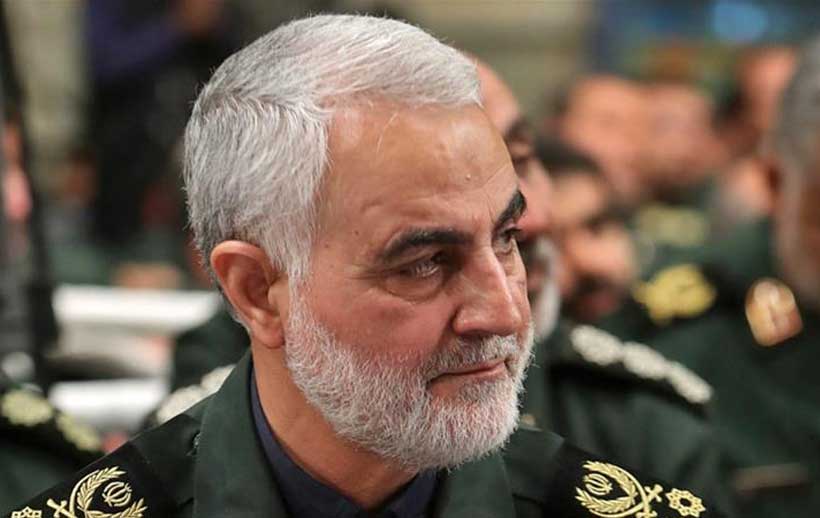“In the eyes of the enemy, the martyr Qassem Soleimani is more dangerous than General Qassem Soleimani.” On the second anniversary of Qassem Soleimani’s assassination, the Supreme Leader of the Iranian Revolution, Ali Khamenei, used these words to characterize the commander of the Quds Brigade of the Iranian Revolutionary Guard.
Since his early youth, Soleimani has been pursuing a life of combat and resistance. The Iranian leader has been present in the majority of conflicts in the Middle East. As a member of the Iranian revolution, Soleimani fought against Israel and Islamic factions in Syria, Iraq, Lebanon, Palestine, and Yemen.
At the beginning of 2020, the Trump administration made the decision to eliminate Soleimani. In the Middle East, this choice is seen as a violation of red lines and the rules of the game. A few feet from Baghdad International Airport, US jets launched a missile strike on Iranian Revolutionary Guard leader Qassem Soleimani.
Abu Mahdi Al-Muhandis, the deputy leader of Iraq’s Popular Mobilization Authority, and Soleimani were all killed in the attack. The martyred Qassem Soleimani made his mark on many thorny issues in the region and lent his considerable talents to the projects’ success.
Qassem Soleimani founded the “41 Vengeance of God” Brigade in 1980 during the Iran-Iraq war when he was in his early twenties. Prior to becoming the commander of the Quds Force in 1998, he served as the Revolutionary Guards commander in Kerman, Iran’s border province with Afghanistan, in the 1990s.
Despite his lack of military training, the commander has spent the last 40 years in the field, moving from one front to the other. Soleimani has been accompanied by Sayyed Hassan Nasrallah and the martyr Imad Mughniyeh in the southern suburbs of Beirut during the 2006 war.
The United States imposed sanctions on him because of his growing military power and popularity with Iranians and peoples who are resistant to American influence, especially after his main role in eliminating ISIS in Iraq and Syria and abandoning American plans for the two countries. Along with martyr Bahaa Abu al-Atta and Sayyed Hassan Nasrallah, Israel considered him to be one of the most dangerous figures in the world.
Soleimani was saved from assassination in October 2019 by an Arab-Israeli plot. The target of Qassem Soleimani’s assassination was to bring him down. Assassinating Qassem Soleimani (and his companion, Hajj Abu Mahdi Al-Muhandis), the stated goal was to thwart Hajj Qassem’s plan to target American troops in Iraq and to protect American national security.
The real purpose of this assassination was to stop the escalation of the axis of resistance’s strength and capabilities by removing the commander of the Quds Force, the actual mastermind and coordinator of this axis’s operations against the Americans, the Israelis, and the terrorism emanating from both sides of the conflict (ISIS and its affiliates).
However, the days and facts on the ground show that there are increasing opportunities and possibilities to target American troops in the region and serious pressure to remove them, especially the Iranian targeting of Ain al-Assad base in Iraq and the targeting of American headquarters and bases with Iraqi missiles several times.
An incident revealed by former Iraqi Prime Minister Adel Abdul-Mahdi confirms Iran’s desire to improve ties with Riyadh. Abdul-Mahdi reported that the martyr Soleimani called him while he was in China with a government delegation and asked him to act as a mediator to begin a new chapter in relations between Saudi Arabia and Iran. After meeting with the Saudi king and crown prince, Abdul-Mahdi said that Riyadh had accepted the offer, so he asked them to write a letter to Iran, which in turn would respond to the letter. From the words of Abdul-Mahdi, it seems that the signs of a resolution of the crisis between Riyadh and Tehran were initiated by Soleimani, in his desire for unity and rapprochement, but what hindered this was his assassination.
Iran continues to confirm that the bombing of the Ain al-Assad base is nothing but a slap to the US and that deterrence continues and Iran will not give up its response to the martyrdom of Qassem Soleimani. Commander of the Quds Force, Brigadier General Ismail Qaani, has revealed the nature of Iranian power, when he mentioned that Iran’s response may be in their own backyard.
The Iranians urged the expulsion of US forces from the region. Baghdad is in a state of emergency as attacks on U.S. interests in Iraq intensify, and it appears that a confrontation is not too far off. When it comes to Trump’s claim that “the world is better now that Qassem Soleimani is gone,” and the subsequent evaluation of this statement, is it really better now?”


